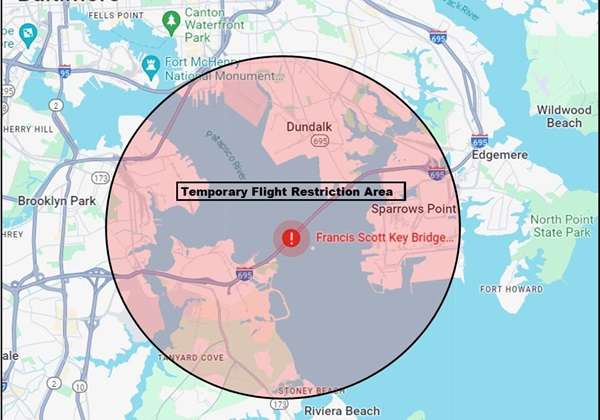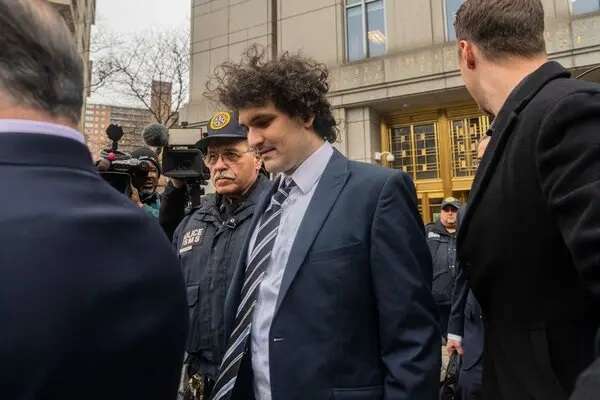Law enforcement agencies overseeing recovery and salvage operations at the Francis Scott Key Bridge collapse site are enforcing strict regulations on unmanned aircraft systems (UAS), or drones, in the airspace surrounding the incident.
The FBI Baltimore, along with other agencies in the Unified Command—such as the Maryland State Police, Maryland Transportation Authority Police, and the United States Coast Guard—are reminding the public that the airspace in the area is a “No Drone Zone.” They are committed to identifying, investigating, and prosecuting any careless or criminal use of drones in the vicinity.
William J. DelBagno, Special Agent in Charge of the FBI’s Baltimore Field Office, emphasized, “All drones are to stay away from the site of the Francis Scott Key Bridge collapse. This is to ensure the safety of all first responders and crews in the area as well as to not interfere with their work. You will be charged federally if you fly a drone in a restricted area. It is harmful to the recovery operations, and it is illegal.”
U.S. Attorney Erek L. Barron echoed this sentiment, stating, “Such incursions threaten the safety of those involved in the investigation of the bridge collapse and the recovery of victims. We will investigate and prosecute anyone who violates the ‘no drone zone.'”
The Federal Aviation Administration (FAA) has implemented a temporary flight restriction (TFR) extending three nautical miles in radius from the center of the bridge and from the surface, up to and including 1500 feet above ground level (AGL).
Law enforcement is actively monitoring for illegal UAS/drone use and has responded to multiple drone incursions over the past few days. There is a zero-tolerance policy regarding any UAS/drone use within the “No Drone Zone.” Violators may face arrest, prosecution, fines, and/or imprisonment.
Information on federal UAS/drone regulations can be found on the FAA website, with specific details on the Key Bridge TFR available there as well.




















